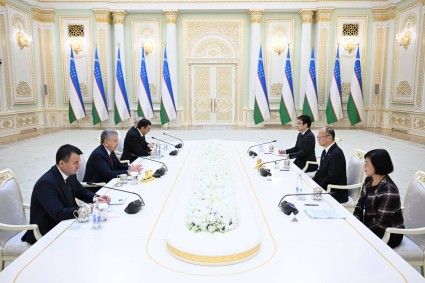The World Bank’s Board of Executive Directors approved today a $143 million concessional credit for Uzbekistan. This financing will support a project aimed at improving the energy efficiency of public buildings and enhancing the institutional and regulatory framework in the buildings sector for attracting clean energy investments.
The concessional financing is provided by the International Development Association (IDA), a member of the World Bank Group, to the Government of Uzbekistan at a low-interest rate, with a repayment period of 30 years, including a five-year grace period.
In Uzbekistan, the buildings sector accounts for 50 percent of the total final energy consumption, followed by the industry and transport sectors at 22 percent and 20 percent, respectively. In the public buildings sector, heating is responsible for about 70 percent of the energy consumption in regional hospitals, 84 percent in pre-schools, 88 percent in rural clinics, and 97 percent in public schools.
Most of the public buildings were developed in the 1970s–1980s with little attention to energy efficiency. Thus, the facilities are poorly insulated, operate below thermal comfort standards, and use old boilers and water heating systems with high energy intensity.
A study conducted by the World Bank in 2021 found that the annual energy savings potential from increased energy efficiency in pre-school, public school, and health care facilities, amounts to over 7,000 GWh (thermal: around 6,810 GWh, electricity: over 240 GWh).
“This new World Bank-funded project will invest in the energy efficiency of public buildings in Uzbekistan, strengthening the building sector’s resilience to climate change and reducing energy consumption and gas emissions,” said Marco Mantovanelli, World Bank Country Manager for Uzbekistan. “This is one of the projects to be implemented under a recently approved World Bank’s Country Partnership Framework for 2022-2026, which, among other priorities, also aims to support the transition towards more sustainable growth in Uzbekistan.”
The project activities will be implemented by the Ministry of Energy of Uzbekistan and its Intersectoral Energy Savings Fund (the IESF) created in 2020 to finance activities improving energy efficiency in industrial, social, and residential sectors.
Through this project, the IESF will be able to finance activities improving energy efficiency in facilities under the Ministry of Preschool Education, Ministry of Public Education, and Ministry of Health, which are located in rural and urban areas across the country.
The services provided by the IESF will include energy audit, design of energy efficiency measures, procurement and financing of works, as well as measurement and verification of savings.
Typical energy efficiency measures will include insulation and improvement of building envelopes, heating, ventilation, air conditioning, and lighting systems, as well as replacement of coal boilers with renewable energy options such as integrated solar electricity panels with heat pumps and/or solar collectors.
The public buildings covered by the project will be modernized to meet national thermal comfort standards and avoid their under- or overheating. The project activities will decrease energy consumption, improve air quality, the security of the energy supply, particularly during the winter months, and the quality of public services providing improved comfort to the students and patients, as well as employees of the educational and health facilities covered by the project.
In addition, the project will improve the IESF’s capacity to implement clean energy investments in various sectors. It will also help launch the National Building Energy Efficiency Program, prepare legislation regulating the clean energy investments market, as well as run public outreach activities to enhance energy efficiency awareness.
The World Bank’s country program in Uzbekistan is one of the largest in the Europe and Central Asia region. It consists of 29 projects, with net commitments totaling $5.4 billion. They provide support in critical areas, such as macroeconomic reforms and the modernization of agriculture, water resource management, water supply and sanitation, energy efficiency, transport, health, education, social protection, urban and rural infrastructure, national innovation, tax administration, and statistical systems. The World Bank also helps the authorities mitigate the health, social, and economic implications of the pandemic.












